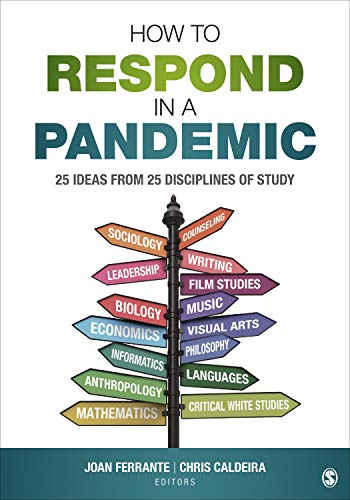VIEWPOINTS: ‘Having the virus was a culmination of denial, fear, and trust’
March 21, 2021
Editor’s Note: Submissions are edited for clarity and length. 130 students read Dr. Joan Ferrante’s “How to Respond in a Pandemic” as part of a Health Innovation grant. Dr. Ferrante shared the award-winning essays with The Northerner. These essays detail how students used the book to cope with the pandemic in their lives.
I did not see the COVID-19 pandemic coming until it had already arrived. At first, I was resistant to the changes that were being made because, at the time, COVID had not yet affected my world. Slowly, I started to understand and back all of the mandates being put into place. I acknowledged that this was bigger than myself and that I needed to adjust my life to the new normal. This included things like my relationships with coworkers. Before the pandemic, I had a close-knit bond with my team of colleagues. The three of us would socialize and get lunch now and then. When the pandemic hit, we all started working from home, and we no longer had the convenience of talking to a colleague a cubicle away. My team made the conscious effort to attend a monthly virtual meeting to maintain our bond. These meetings allowed us to have a more intimate connection since we are essentially inviting each other into our homes and presenting a more relaxed version of ourselves.
Another way I responded to changes in my relationships was denial. It was hard to accept that I could no longer comfortably see the people that I was so used to spending my time with. At the beginning of the pandemic, I turned 21. This birthday is supposed to be a celebration galore, but with everything shut down, it is hard to celebrate the way you wish you could. My version of that birthday was spent at virtual happy hours, socially distanced present drop-offs, and a birthday parade with my family and friends. I accepted that this was a new way to celebrate while we are “together apart.”
Living in a virtual age has helped exponentially in getting through this pandemic. I can see those who I cannot physically be with because either they were working with a COVID patient or I was one myself. The way I responded to having the virus was a culmination of denial, fear, and trust. I was in disbelief when I first found out I had it because I was following all guidelines and trying my best to live safely in a COVID-19 world. Then fear came because I didn’t know where I had contracted the virus, and I did not want to expose my family. Finally, trust set in that I would be okay because I was a relatively healthy individual who has access to health care, if needed.
When reading How to Respond to a Pandemic, I could not help but draw parallels to my own response. In the Health Economics section of the book, I learned that individuals think in terms of pursuing their own interests instead of those of the collective. Whenever I go to the store, it is infuriating to see so many people still without masks on. These people prove that they do not care about reducing transmission as much as they care about their own comfort. This is partially why cases are rising exponentially and why people who do everything right, like me, may have contracted the virus unknowingly.
The Political Science discipline suggests making virtual meetings as effective as in-person ones. This is exactly what my colleagues and I did. Our virtual monthly meetings are as effective, if not more so, as before. The other parallel I saw was in the Psychological Science section. It said that when we examine changes in our lives, we must see what we have lost and what we have gained. For example, I may have lost the typical experiences of my 21st birthday, but I also gained the love of those that wanted to celebrate me despite the circumstances.
There are other discipline-recommended responses that I realized could change the way I respond to the pandemic. Philosophy’s response of standing up for the marginalized and vulnerable, especially under the egalitarian ethical frame truly opened my eyes. By putting myself behind the “veil of ignorance” in regard to the pandemic, I am able to see how disproportionally affected marginalized populations are. This goes in hand with the Critical White Studies discipline. Never before had I thought about racial segregation as a form of the social distancing and physical distancing that still exists today and helps to explain COVID19’s effects on marginalized communities. The third discipline response I would like add to my repertoire of responses is English Literature. I appreciate how it says that writing notes of appreciation in times of crisis makes us more grateful for our experiences and human connections. This would help me to respond, because it is not every day that I appreciate and acknowledge all that people do for me. These writings help to build the relationships I have worked on since the beginning of the pandemic.
This assignment helped me gain the ability to make responses to better protect myself, NKU, and the greater community in the future. Before reading this book, I knew how I and those around me had been affected by and responded to the pandemic. Although I felt like I had plenty of tools at my disposal to make the best of COVID-19, I did not really know how to fully use my toolbox. After reading the book, it seemed as though I could see all the tools laid out with a specific purpose, and it was now up to me to make the best of them. The responses I will have from here on out are going to be less egocentric and more focused on how my community feels the effects of the pandemic.

